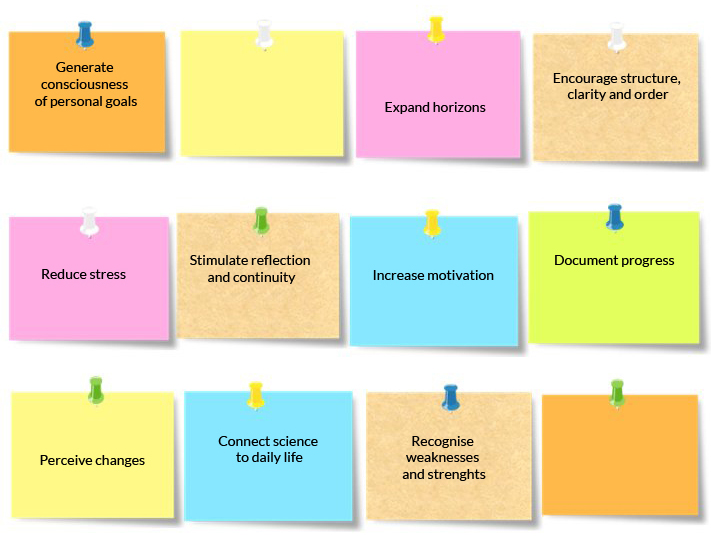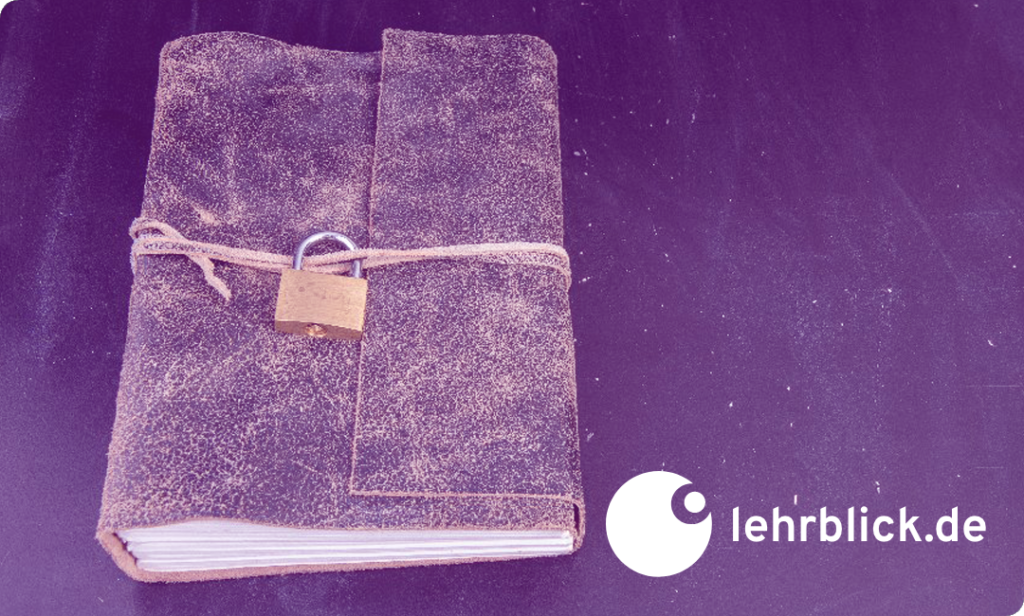Journal writing is usually kept strictly confidential. Is it then really something to use in teaching? Or is the idea of a journal even obsolete? This is what I wanted to find out in my advanced seminar “Nature/Nurture Debate in Expertise Research”, together with my students (5th semester bachelor’s students in Pedagogy).
As part of my seminar, it was important to me to pique students’ interest and curiosity for a scientific topic, further their scientific understanding and improve their work with English-language literature. Furthermore, I wanted to create opportunities for discussion and debate in order to cast a critical light on various perspectives on nature/nurture debate and interrogate them together with the students.
In order to realize these goals, it was essential that the students be well prepared each week. This preparation consisted of a thorough reading of a scientific article. That may not sound like much at first. However, regular preparation is difficult for many students. How could I best stimulate continuous reading?The idea of a learning journal was born. With the learning journal, I wanted to encourage regular reflection, and so my students were tasked with writing weekly entries. In each class, the students received 5 minutes or 2×5 minutes to make a few notes for their learning journals. I had them submit the journals shortly before the end of the last class, which made it almost impossible to procrastinate or write entries afterward.
Design of the Learning Journal
My aim was to gain insights into the process and see the development of students’ own thoughts and ideas. What exactly is going on in students’ minds when they engage intensively with a topic? What do they find difficult and why? What do they find interesting? The answers to these questions often remain hidden and are difficult for instructors to access.
Because the students had no previous experience with writing a learning journal, it was important to me to make my expectations clear and offer assistance. First, the students formulated personal learning goals. With the help of the learning journal, they would be able to regularly check these goals and become aware of their own progress, but also document challenges and setbacks.
Students’ own learning goals from the learning journal
- Over the course of the seminar, I can understand English-language studies better and better and can restate the essential contents of a study in my own words after reading it.
- After the seminar, I would like to have critically examined my previous opinion on the nature/nurture debate and be able to defend a position which is justified by arguments.
- After the seminar, I would like to have developed an approach to scientific work which is appropriate for myself.
- My personal goal is to develop sufficient motivation through this seminar to engage with this and similar topics beyond the seminar with the aid of scientific literature.
- Over the course of the seminar, I will learn to seek out an active exchange with fellow students, to also use their ideas in the development of my own opinions and thereby generate a repertoire of knowledge regarding this debate which is as broadly-based as possible.
- I would like to get better at generating interest in myself for topics on my own and through reading.
- I would like to learn how to recognise that the content I am able to learn is not simply a checkbox in the list for my bachelor’s, but rather the opportunity to engage with it intensively and apply it meaningfully.
I also formulated guiding questions on general approaches (e.g. “Which activities help me to work through a topic?”) and the engagement with a topic (e.g. “How can I link the contents to my own day-to-day examples?”) which the students could use for their learning journals.
The evaluation criteria were transparent for the students from the start. Alongside requirements regarding design and formal criteria (e.g. completeness, layout), learning goals (e.g. clarity, observations) and critical reflection (e.g. reference to learning goals, honesty) were decisive first and foremost. With the help of the evaluation criteria, I was able to identify clear differences in the quality of the learning journals. The evaluation was time-consuming but well worth it.
Feedback and Reflection from the Students
In the middle of the semester, there was an intermediate evaluation and the students identified various aspects which they experienced as helpful for developing their competencies:
- individual preparation through reading the foundational literature
- joint discussion of the texts in breakout sessions and with the whole group
- more intensive engagement with relevant passages in the texts
- reflection through weekly writing in the learning journal helped to order thoughts
- time to take notes for the learning journal in class was super
- guiding questions and examples for the learning journal were very helpful and a good orientation
At the end of the semester, I was very much looking forward to the reflections. Had I given my students sufficiently good instructions and would I actually gain insights into their thoughts and processes? I did not want summaries of the literature. Instead, I wanted to see an active engagement with the literature.
When reading the learning journals, my heart leapt with joy as I saw that the controversial discussions and intensive conversations in the seminar classes activated many students to formulate additional learning goals. They did indeed reflect consciously on their experiences. Their personal voices could be heard and I would like to quote several statements here:
“By reading the text alone at home, I was able to gain new knowledge, though I considered the text more critically and intensively through working with the text in the group.”
“I find it really fascinating and have never seen before that a debate between two different groups with disparate opinions can carry on for so many decades.”
“I experienced a significant Aha! effect over the course of the class. …”
“During my preparation for the class, this quote caused me to consider it for a long time.”
“By reading and summarizing the many texts and by trying out new learning strategies, I am taking a great deal away from this seminar in this regard.”
“I can recognise that a continuous learning process took place and new thoughts were constantly coming up in connection with the seminar.”
“Even if these issues were not new for me, I found it positive that they became solid knowledge over the course of the seminar. I have rarely experienced this in a seminar as intensively as in this one.”
“However, this part of the class was a jack-in-the-box, in the sense that this part really surprised me. I used to think that this topic was more boring and dry.”
Added Value of a Learning Journal
Why would I use a learning journal again in higher education and recommend it as an alternative to a research paper? In my opinion, there are several good reasons for this which I would like to share:

Conclusion
The seminar was great fun and it was a joy to read the learning journals. It was great to see the way the students delved ever deeper into the topic and interacted with one another. The individual preparation in combination with the discussion of texts in small groups and with the whole class led to ever-increasing comprehension of the texts. The students continued to engage with the topic beyond the seminar itself. The insights into students’ thoughts, processes, changes, questions, experiences, critical considerations, Aha! moments, but also uncertainties, doubts and setbacks became accessible through the learning journals. I would like to thank all of the students for their trust and openness, as this journal was not, in fact, “strictly confidential” and yet still very personal.
References
Dignath-van Ewijk, C., Fabriz, S., & Büttner, G. (2015). Fostering self-regulated learning among students by means of an electronic learning diary: A training experiment. Journal of Cognitive Education and Psychology, 14(1), 77–97. https://doi.org/10.1891/1945-8959.14.1.77
Suggestion for citation of this blog post
Jossberger, H. (2022, July 28). Good Reasons to Keep a Learning Journal. Lehrblick – ZHW Uni Regensburg. https://doi.org/10.5283/ZHW.20220728.EN

Helen Jossberger
Dr. Helen Jossberger lehrt im Studiengang Erziehungswissenschaft im Bachelor und Master und interessiert sich in ihrer Forschung für die Themen Lernen und professionelle Entwicklung, Expertise, Feedback, Gestaltung von Lernumgebungen, Motivation und selbstreguliertes und -gesteuertes Lernen. Das Lehrprojekt entstand im Rahmen der Vertiefungsstufe des Zertifikats Hochschullehre der bayerischen Universitäten am Zentrum für Hochschul- und Wissenschaftsdidaktik der Universität Regensburg.





